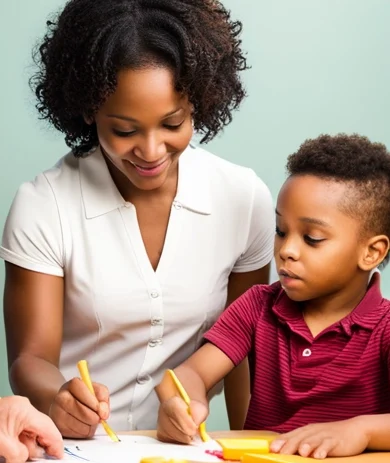the importance of patience in speech therapy

Finding out your child needs speech therapy can be a daunting journey for any family. Parents often ask: “How long until my child speaks normally?” and “How long will therapy take?”While these concerns are understandable, it’s crucial for families to recognize the importance of patience in speech therapy.
Speech and language development is a complex process that varies from child to child. Each individual has unique strengths, challenges, and learning styles that influence their progress in therapy. As such, there is no one-size-fits-all answer to questions about the duration of treatment or the timeline for achieving “normal” speech.
Effective speech therapy requires a collaborative effort between the therapist, the child, and the family. Consistency and dedication are key factors in making progress, but it’s equally important to approach the process with patience and understanding. Rushing or putting undue pressure on a child can be counterproductive and may even hinder their progress.
Furthermore, as a therapist, I guide and support the child’s communication development, providing families with tools and strategies to foster growth outside of therapy. This process takes time, and it’s essential for families to trust in the expertise of their therapist and to celebrate the small victories along the way.
Ultimately, the importance of patience in speech therapy cannot be overstated. By embracing a patient, supportive approach, families can create a positive environment that encourages their child’s communication skills to flourish at their own pace. With dedication, understanding, and a willingness to take things one step at a time, children can make significant strides in their speech and language development, setting the stage for a lifetime of successful communication.
Decoding Patience: More than Waiting
In speech therapy, patience takes on a nuanced significance. Every child develops at their own unique speed, and it’s crucial to respect this individual pace in their learning and growth.
The road to effective speech is filled with gradual improvements and temporary setbacks. Understanding this can help families develop a more compassionate, patient attitude.
The Complexity of Speech: A Symphony of Factors
Saying a single word involves a myriad of hidden processes. The tongue, lips, and vocal cords must work together, coordinated by the brain. Achieving success in speech therapy requires a symphony of elements working in harmony.
The Power of Belief: Fostering Confidence in Children
One of the greatest lessons I’ve learned as a speech therapist is this: “If a child believes they cannot say a sound or word, chances are they won’t.” This highlights the vital role of self-confidence in speech development.
Children excel in verbalizing familiar words because they are confident about saying them. Unfamiliar sounds and words often meet with hesitancy, emphasizing the importance of fostering a child’s confidence.
The First Attempt: A Pioneering Venture
Every new word or sound is, at first, a mountain to be climbed. The child must coordinate cognitive and physical elements in a new way. Even when everything is in place, the child may need a final nudge to attempt that new word.
The role of a speech therapist often involves being that encouraging force. They equip the child with tools and assurance to venture into unexplored territories of language.
The Therapist’s Role: A Facilitator of Patience and Confidence
As therapists, our job goes beyond instructing; it involves inspiring confidence and cultivating patience in children and their families. The more patient and confident a child feels, the easier it becomes to confront and overcome speech challenges.
Each child’s journey is unique, and believing in their potential to make progress sets the stage for effective outcomes.
Patience and confidence are necessities that act together, each reinforcing the other. A patient approach allows time for confidence to build, while confidence makes patience feel worthwhile. This dynamic interplay can unlock a child’s fullest communicative potential.
